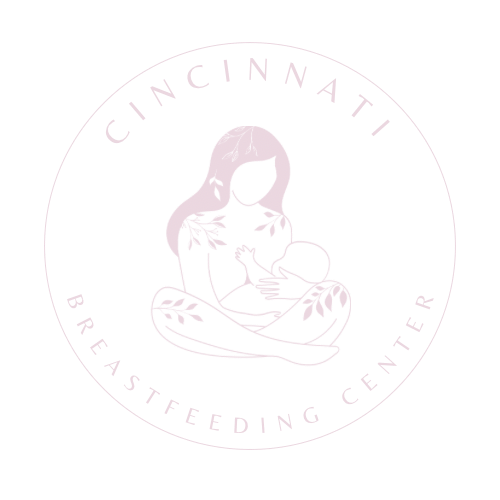Prenatal Lactation Care
Prenatal lactation care is incredibly beneficial because every baby and breastfeeding journey is unique. Regardless if this is your first baby or your fifth baby each baby’s needs and experiences can differ significantly and having a plan not only alleviates any stress but also increases your confidence when it comes to breastfeeding. At CBC, we equip you to achieve your feeding goals once your little one arrives with a personalized plan for you, a support system to call on, and education that makes you feel prepared. What this means to you is you will have practice early on so you can manage expectations. The real value is you will feel empowered and prepared when you hold your new baby for the first time. Despite the abundance of resources available, you may still feel unprepared when it comes to feeding your baby and a lot of the time simply don’t know where to start. Latching your baby for the first time can be anxiety-inducing as many expect the hospital scenario where nurses may only say, "Just breastfeed, honey!" without much guidance. We aim to address concerns early on to ensure you can fully enjoy those precious moments with your baby and the journey ahead without worry. We want you to feel empowered and prepared when you hold your new baby for the first time.
Prenatal Lactation Care Education
- For first-time moms, we focus on covering breastfeeding basics, preparing for the early stages of breastfeeding, prenatal harvesting of colostrum, pumping and bottle feeding.
- For moms with previous breastfeeding experience, we review past experiences, identify successful strategies, and develop plans to address any challenges early on.
- We also provide support to manage the mental load and stress of breastfeeding, especially when balancing the needs of multiple children.
First Visit Expectations
- Comprehensive Health Assessment: We’ll go over your medical history, current health, and any past pregnancies or breastfeeding experiences to make sure the prenatal lactation care fits your needs.
- Education and Planning: We go over in detail what to expect during pregnancy and breastfeeding, including basic techniques, milk supply, what the first few days- weeks look like and potential challenges.
- You’ll leave the visit with a personalized plan to help you reach your feeding goals.
Common Lactation Care Challenges
As expectant moms prepare for breastfeeding, they often encounter several common challenges. Many moms don't realize they may benefit from a lactation consultant because they believe there's already enough support available, like through their pediatrician's office or the hospital lactation consultant. They might think, "Oh, that's all I need." Regardless of whether you've had multiple children, each baby has distinct needs, and no two feeding journeys are alike as well as the challenges you can face. Some may need to learn foundational skills such as latch techniques and milk supply management. Others may seek guidance on managing the demands of breastfeeding while caring for multiple children or how to advocate for themselves in the hospital. Navigating complex feeding cases requires specialized knowledge and tailored strategies to address issues such as tongue-tie, oral aversions, and food sensitivities, ensuring both mother and baby receive the best possible support. We recently worked with a mom who felt anxious about advocating for herself in the hospital when it came to breastfeeding. She was worried that the hospital staff might discourage her from breastfeeding. Thanks to the
prenatal lactation care
consultation
and the initial home visit, she gained the confidence she needed. This support empowered her to advocate for breastfeeding in the hospital and manage supplementing while waiting for her milk supply to establish. These steps made a significant difference, ensuring that short-term challenges didn't derail her long-term breastfeeding goals. We worked with another mom who was expecting her second baby who had struggled with breastfeeding the first time. We developed a personalized plan that boosted her confidence and addressed challenges from her previous experience. Once her baby arrived, she emphasized how invaluable the prenatal consultation had been in those initial days at the hospital. The handouts provided during the visit served as reliable references she frequently used to troubleshoot latch issues and other concerns when she lacked extra support. Ultimately, she felt empowered and equipped to navigate the early stages of feeding with greater ease and confidence.
Our Prenatal Lactation Care Specialists
It's really crucial to have someone who understands both breastfeeding and the challenges of modern motherhood. It can make a huge difference in finding peace of mind and joy in your feeding journey, while also helping you achieve your goals. We aim to provide unwavering support, whether you're a first-time mom or experienced. Each baby and breastfeeding journey is special. What we do know is it’s essential to have a lactation consultant who understands the challenges of breastfeeding and the support you need. When you have a support system in place, it means you've got someone to call if feeding issues come up, so you can tackle them early and avoid any worry or stress down the line. One on one
prenatal lactation care support from an IBCLC is essential as we are equipped with the knowledge and skills to help navigate any breastfeeding challenges you may encounter. Our expertise ensures you receive expert guidance tailored to your well-being and feeding aspirations, drawing from extensive experience in both private practice and hospital settings.
Testimonials
Vitalia helped me SO much! She gave me new insights, helped recognize one twin needing additional support with craniosacral therapy and eased my mind. You won't be disappointed!
J. R.
Working with Vitalia has saved my breastfeeding journey! I truly look forward to my appointments with her because I know she will do everything she can to help me meet my breastfeeding goals.
Carlie
Vitalia just has this wonderful energy about her that helps you feel calm even in the presence of breastfeeding frustration. I am so thankful that I went to see Vitalia.
Janice
Quick Tips for Prenatal Lactation Care
- Practice hand expression: this is one of the only skills you can work on mastering before baby arrives! It can allow you to collect colostrum before baby arrives and practice hand expression which is a great way to support milk supply once baby arrives.
- Take a breastfeeding class or do a 1:1 consult: This is a great way to learn more about breastfeeding, have all your questions answered and feel more confident in navigating feeding your little one once they arrive.
- Stock up on snacks: breastfeeding hunger can be intense in those first few days. Having nutrient dense, snacks on hand that are easy to grab makes it easy. Cheese sticks, hard boiled eggs, trail mix, granola bars are all great options.
- Stock Up on Supplies: Make sure you have breastfeeding essentials like nursing bras, breast pads, and a reliable breast pump before the baby comes.
- Stay Hydrated: Keep sipping water and electrolytes throughout your pregnancy to stay hydrated and feel your best. This is important to continue as you start your breastfeeding journey to help support milk supply.
- Eat a Balanced Diet: Fill your plate with lots of fruits, veggies, lean proteins, and whole grains to help your baby grow healthy.
- Take Prenatal Vitamins: Don't forget your prenatal vitamins, especially the ones with folate, to support your baby's development. It’s important to continue taking it once baby arrives along as your breastfeeding.
- Learn Breastfeeding Basics: Get familiar with breastfeeding techniques like achieving a good latch and different positions—this will make things easier later. Tip: having some latch videos saved on your phone can be helpful.
- Join a Support Group: Find other expecting moms or join breastfeeding support groups online or locally to share experiences and get advice.
- Understand Newborn Feeding Cues: Learn to spot when your baby is hungry—look for signs like rooting, sucking on hands, or making sucking noises.
Additional Resources
Frequently Asked Questions
-
What can I do to prepare for breastfeeding while I'm pregnant?
- Learn the basics of infant feeding.
- Get familiar with a few breastfeeding positions.
- Understand feeding cues.
- Gain a basic understanding of milk supply.
- Take a breastfeeding class or do a 1:1 consult for the best guidance!
-
Can I pump before my baby is born?
It's usually recommended not to pump before your baby is born, as it can trigger uterine contractions. However, you can hand express and collect colostrum starting around 37 weeks, but be sure to get approval from your OB or midwife first!
-
When does your milk supply begin to produce while pregnant?
You start making colostrum around 16 weeks pregnant!
-
What should my diet consist of while I’m pregnant to help milk production?
It's essential to maintain a well-balanced diet, ensuring adequate protein intake and prioritizing healthy fats and complex carbohydrates. However, it's important to note that diet alone during pregnancy doesn't necessarily predict milk supply after the baby is born.
Request an Appointment
We prioritize your well-being and aim to empower you with the knowledge and skills necessary for a positive breastfeeding experience. No matter where you are on your breastfeeding journey, our
prenatal lactation care services are here to support you -judgment free. Please fill out the form below to request an appointment and we will contact you within 24 hours.
Thank you for contacting me. I will get back to you as soon as possible.
Oops, there was an error sending your message. Please try again later or call me to schedule an appointment.
About Cincinnati Breastfeeding Center
We understand that breastfeeding and lactation can be a deeply personal journey and sometimes challenging journey. We are here to support you every step of the way .
All Rights Reserved | Website Design By Toucan Digital Marketing




